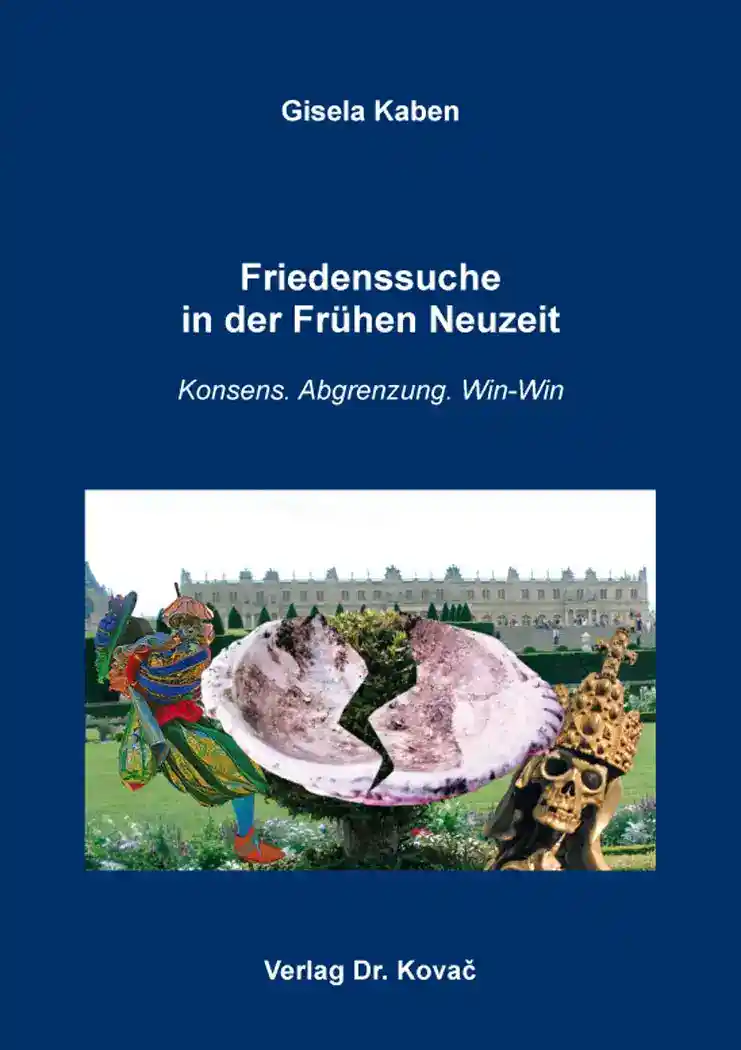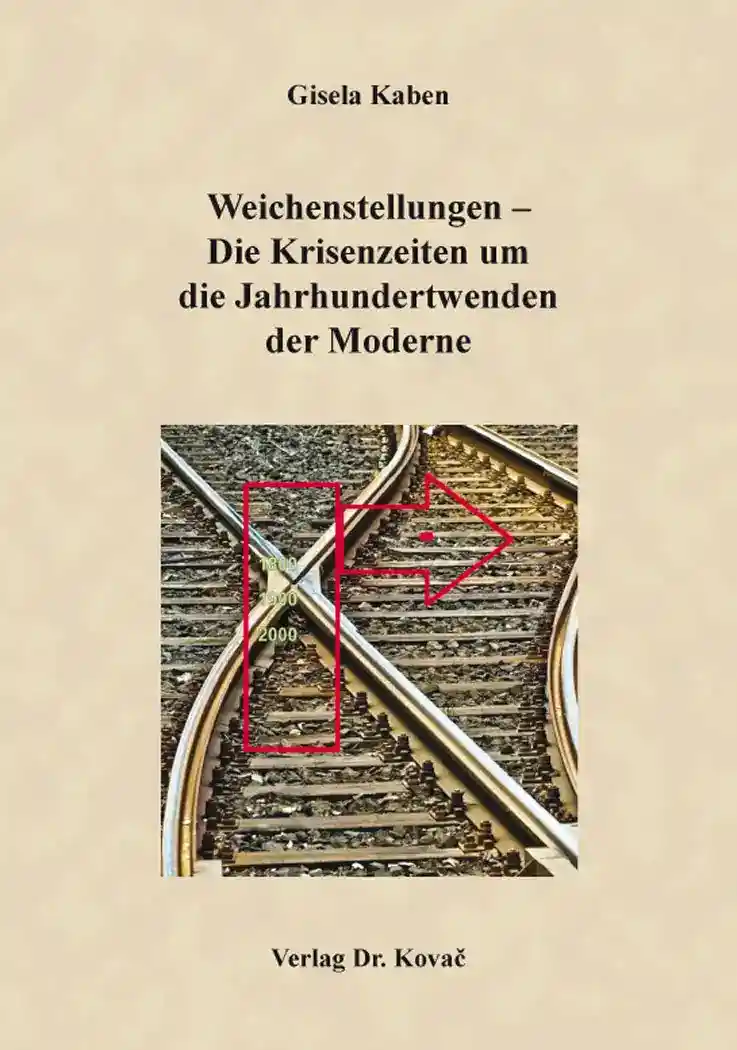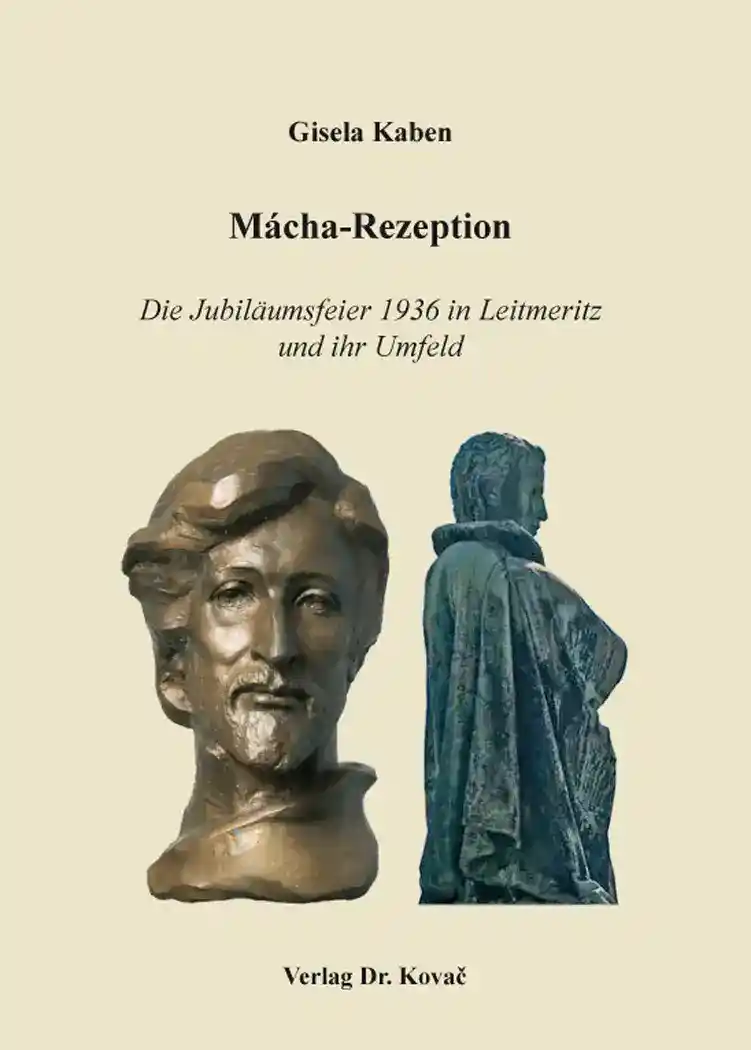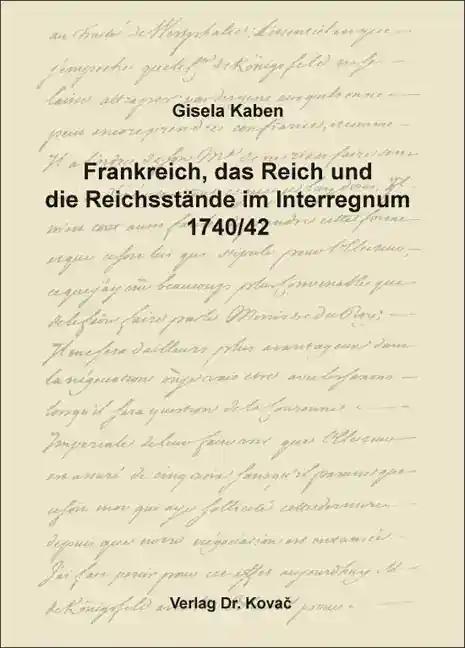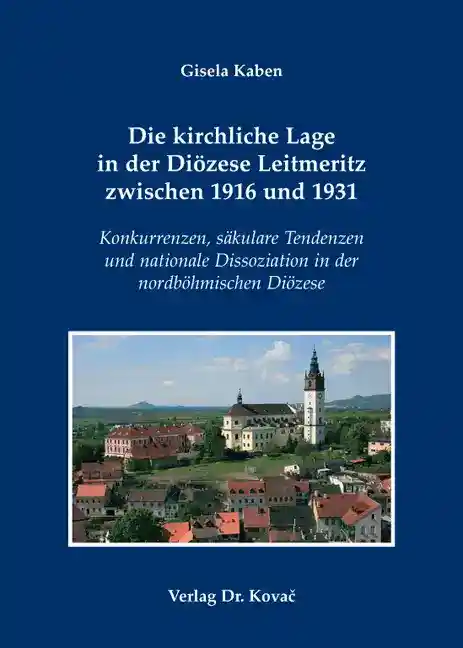Gisela KabenFriedenssuche in der Frühen Neuzeit
Konsens. Abgrenzung. Win-Win
Studien zur Geschichtsforschung der Neuzeit, volume 96
Hamburg 2018, 336 pages
ISBN 978-3-8300-9498-2 (print)
ISBN 978-3-339-09498-8 (eBook)
About this book deutschenglish
Search for peace is ordinarily preceded by a war. That is not necessarily the case, people could as well reflect in peace-times how to preserve such peace condition. In Early Modern Times, however, peaceful periods were not very frequent within Europe; fighting always took place in any region. Sometimes war was waged simultaneously in several corners of the continent, and, in varying intensity were all these conflicts connected. Many reasons were indeed aimed to begin a war, deriving from different causes, such as religions, economic profit or yield - permanent troops were expensive – or geopolitical aspects. Familiar connections meant a common justification, especially during the 18th century. As to right and law: If there existed a just peace, then a just war as well. And to reach a peace, deriving from a “just war”, was necessarily not so easy.
In this period peace-congresses came in some way into fashion. This was nearly inevitable, because the number of combatant parties was steadily growing, due to the numerous alliances, which had often been concluded to retain security or by fear of an assault. As a result even more sides were involved into the war. Each of them had to be conceded some satisfaction, and just to the extent, that was able to save their face. Diplomats had no easy task, being frequently regarded critically. The longer their negotiations continued, the more the envoys tended to keep court rather generously – but they were indeed working hard, trying to formulate peace-treaties in a manner that would prevent the next soon outbreak of war. But just this happened quite often. To get the states concerned satisfied, they needed territorial gains or trade advantages. Those could be very generous, especially when slave-business was involved. The maritime powers were slave traders without exception, and often also brutal colonial masters. Enlighteners as well took their profit by it, in spite of their defense of human rights. Waging war to keep their standards was increasingly usual.
Rather early drafts were conceived, to prevent wars before their beginning. The authors were practical politicians but scholars, too. Their ideas differed considerably, but in one aspect they were reaching the same conclusion. They aimed at a united Europe as best protection against war.
Link der Autorin
Kontakt zur Autorin
Keywords
BündnisseDynastienEinigungskonzepteEuropaFriedenFriedenssucheFrühe NeuzeitGeschichteHandelKolonienKonfessionenKriegMilitärÖffentlichkeitPhilosophieYour book at Dr. Kovač Publishing House
Weitere Bücher der Autorin
Weichenstellungen – Die Krisenzeiten um die Jahrhundertwenden der Moderne
Hamburg 2020, ISBN 978-3-339-10904-0 (Print) | ISBN 978-3-339-10905-7 (eBook)
Die Jubiläumsfeier 1936 in Leitmeritz und ihr Umfeld
Hamburg 2016, ISBN 978-3-8300-8429-7 (Print) | ISBN 978-3-339-08429-3 (eBook)
Frankreich, das Reich und die Reichsstände im Interregnum 1740/42
Hamburg 2013, ISBN 978-3-8300-6370-4 (Print) | ISBN 978-3-339-06370-0 (eBook)
Die kirchliche Lage in der Diözese Leitmeritz zwischen 1916 und 1931
Konkurrenzen, säkulare Tendenzen und nationale Dissoziation in der nordböhmischen Diözese
Hamburg 2009, ISBN 978-3-8300-4111-5 (Print) | ISBN 978-3-339-04111-1 (eBook)
